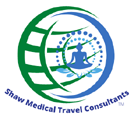Before embarking on travel, it is recommended to secure travel insurance, even for local travel but definitely for international travel. Travel Insurance can arrange medical treatment in an emergency, monitor your care, serve as interpreters, help you replace lost passports and so much more. There are many pointers that you should know and there many facts you should find out prior to travel. A few things you should know about travel insurance:
- Benefits vary by plan. It’s important to choose a plan that fits your needs, your budget and your travel plans. Here are definitions of all available travel insurance benefits. https://www.allianztravelinsurance.com/find-a-plan/benefits
- Coverage – Travel insurance can’t cover every possible situation. Allianz Global Assistance offers named perils travel insurance, which means it covers only the specific situations, events, and losses included in your plan documents, and only under the conditions we describe. Travel insurance is designed to cover unforeseeable events— not things you could easily see coming, or things within your control. If, for example, you wait to buy insurance for your beach trip until after a named hurricane is hustling toward your destination, your losses wouldn’t be covered.
First before leaving your country take some time to review your own local insurance policy. Consider calling your insurance representative if you’re not quite sure about what or how much your coverage allows. Also it’s important to note the difference between travel protection, Which includes coverage for a trip cancellation, trip interruption, travel delay benefits, baggage loss or damage or delay, change fee, frequent travel loyalty plan coverage and travel insurance, which is akin to health insurance coverage and includes travel protection. The following items are worth checking:
- Does your local insurance provide medevac transportation from out of state or out of country locations?
- Does your local insurance cover for emergent care in foreign countries or out of state?
- If your local insurance provider does not directly pay out of state or foreign countries, do they allow you to provide a claim for reimbursement once returning home?
- Does your local insurance provider offer reciprocal coverage in other countries, this is because some local insurance carriers have a global presence?
- Can your local insurance carrier suggest preferred physician clinics or hospital organizations in foreign countries that they would recommend for care if needed?
Secondly, you need to review your travel style and plans for travel Because it’s impacts your cost:
- Are you a careful planner where you need to have every aspect of your vacation preplanned including hotels, tours etc.
- Are you a spontaneous adventurous risk-taker traveler, more of a free spirit with flexible travel plan dates with frequent extension of your visits and changes to your return date?
- Are you more concerned with saving money?
- Where are you more concerned with preserving your Peace of Mind and prefer to save well established hotel chains etc.
- Does your trip have multiple segments?
- Do you plan on taking multiple trips in a 12 month period?
- Will this be a solo travel, travel with a partner or a stranger, travel with children?
https://www.insuremytrip.com/travel-insurance-plans-coverages/
Some recommended insurance carriers for international travel:
Allianz global assistance (owned by Allianz SE)
Generali global assistance – Parent cpy The Europ Assistance (EA) Group


